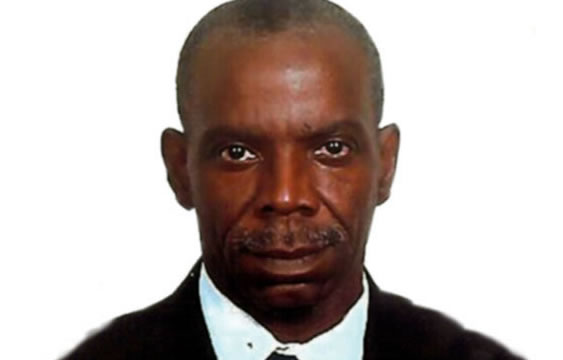PREMIUM TIMES
After the 25 February presidential and National Assembly elections, now heavily disputed, Nigeria goes to the polls again on 18 March to elect governors and members of state legislatures in 28 out of 36 states of the Federation. There would be no state elections in Kogi, Anambra, Ondo, Imo, Edo, Osun, Bayelsa and Ekiti which are in the off-cycle election belt. However, this weekend’s elections were meant to hold last Saturday, March 11, but the polls had to be rescheduled on account of the disputes that arose from the 25 February Presidential election and the orders given by the Court of Appeal acting as the Presidential Election Petition Tribunal. Three political parties – the Peoples Democratic Party (PDP), the Labour Party (LP) and the All Progressives Congress (APC), acting in self-defence in its case, had gone to court to seek permission to be allowed to inspect the materials used for the election by the Independent National Election Commission (INEC) which announced the Presidential candidate of the All Progressives’ Congress (APC), Asiwaju Bola Ahmed Tinubu as winner of the election with 8. 974, 726 million of total votes cast. The Presidential candidate of the People’s Democratic Party (PDP), Atiku Abubaar, and Mr. Peter Obi of the Labour Party had challenged the results as declared by INEC. The court ruled in their favour on Friday, 3 March. By Tuesday, March 7, the ruling APC and its candidate, now president-elect, also sought the leave of court to have access to the election materials. INEC also approached the court requesting that it should vary the order it gave earlier permitting PDP, LP, to inspect election materials, by granting it leave to reconfigure the Bi-Modal Verification Accreditation System (BVAS) ahead of the Gubernatorial and State legislature elections scheduled for 11 March.
Counsel to INEC had told the Presidential Election Petitions Tribunal that their client would need a minimum of five days to reconfigure the BVAS. As it turned out, the two other matters were determined on Wednesday, 8 March. The court granted INEC’s request to reconfigure the BVAS, but it did not rule that this should have any effect on the March 11 date. The Court granted APC its prayers. But in yet another matter, it refused to grant the Labour Party its request to inspect the INEC data base, and oversee the reconfiguration of the BVAS. On its own, after a review of the Court’s ruling, INEC announced that “it was far too late” for the reconfiguration of BVAS to be concluded within two days in over 170, 000 polling units nationwide. Consequently, the Commission rescheduled the Gubernatorial and state Assembly elections till March 18. INEC promised that it would obey the orders of court: grant the petitioners access to inspect election materials, and also upload data to its back-end server and make Certified True Copies of same available to all parties in the matter.
It is now election week again, as Nigerians are expected to troop out this Saturday to participate in state elections. They would be doing so against the background of the drama generated by the elections of 25 February. As various international observers have pointed out: Chatham House, Ambassador Mark Green, Ambassador Johnnie Carson, the US Observer Mission, Financial Times, Bloomberg, New York Times, South Africa’s Broadcasting Corporation (SABC), Reuters, YIAGA Africa, The Guardian UK, BBC, Chinese News Agency, Washington Post, Nigeria Civil Society Situation Room, the African Union Election Observation Mission to Nigeria, ECOWAS, EU, UN, and the West African Elders Forum (WAEF) among others, the emergent consensus was that whereas the people of Nigeria showed much zeal and determination towards the polls, the entire exercise fell short of the people’s expectations. In other words, INEC disappointed the people. I have already offered a catalogue of the sheer incompetence and poor performance put up by INEC in an earlier commentary (see “Nigeria: 25 February and the Aftermath,” Tuesday, 7 March). Things have gone so bad that in fact the People’s Democratic Party led by its Presidential candidate and other party leaders had to stage a protest from the party’s headquarters to the Headquarters of INEC, on Monday, 6 March. They asked for a cancellation of the election, and submitted a protest letter. A week later, the Labour Party in a statement issued by its Chief Spokesperson, Dr Yunusa Tanko, is also threatening to call out its supporters on a peaceful protest to challenge INEC’s refusal to obey the order of Court to allow the party to inspect election materials. Tanko insists that the court order was duly served on INEC and a reminder was also sent to it. But whereas INEC is busy reconfiguring the BVAS, it has ignored other court orders. It has failed to keep its promise. Other political parties are aggrieved. It must be noted that on three previous occasions since 1999 that elections were postponed, Nigeria usually cited either security or logistics reasons: 2011, 2015, 2019, but in 2023, INEC’s excuse is that it has to reconfigure its equipment!
The biggest calamity in Nigeria’s democratic process this time around is the embarrassing conduct of the electoral umpire. The people have lost trust in INEC. The institution suffers a credibility crisis. The worst thing that can happen to any public institution is to end up in the eyes of the same people it is established to serve as a fibbing, clumsy, unreliable institution. Between 25 February and now, INEC has broken virtually all the promises it made to the people of Nigeria, including the ones its Chairman rolled out for effect on the floor of Chatham House in London! INEC’s much-trumpeted confidence in the deployment of technology as enabled by the law and its own guidelines has been shown to be nothing more than an exercise in hypocrisy. On 25 February, results from polling units were transmitted to the INEC portal called iREV, but not Presidential election results from the same polling units. More than a week after the elections, INEC could not fully load results unto its portals. Many voters could not get their Permanent Voter’s Cards, the same cards that have been sighted in bushes, forests, in the hands of foreigners and shadowy apartments across the country. INEC could not distribute its own PVCs! The Court of Justice Obiora Egwuatu has now ruled, 9 March, in favour of two persons: Kofoworola Olusegun and Wilson Allwell that they should be allowed to vote with their Temporary Voter’s Cards (TVCs), but although the ruling is in personam, the matter having not been filed in a representative capacity, INEC says it will appeal the Federal High Court ruling. Since the return to democratic rule in 1999, no other electoral process has been this confusing and uncertain.



Connect with us on our socials: